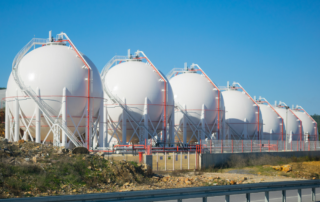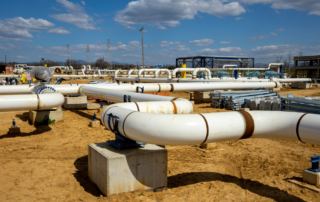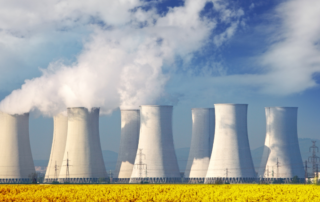Natural Gas Storage: How Capacity Constraints Affect Market Prices
Natural gas storage plays a crucial role in stabilizing market prices by balancing supply and demand throughout the year. This blog examines how storage capacity constraints and seasonal dynamics affect natural gas prices, offering insights into market trends and strategies for managing price volatility.
The Ins And Outs Of Natural Gas Transportation And The Pipeline Network
The natural gas pipeline network is the backbone of the United States' energy transportation system, ensuring that this vital resource reaches consumers efficiently and reliably. This complex and extensive infrastructure plays a crucial role in maintaining a steady supply of natural gas from production sites to end-users across the nation. Learn more about nat. gas pipelines in our latest article.
Smart Grids and Grid Modernization: Strategies, Technologies, and Benefits
Smart Grids and grid modernization are transforming the traditional electricity network into a more efficient, reliable, and resilient system. This article explores the advancements in Smart Grid technology, the benefits of modernizing the grid, and their impact on energy management and sustainability.
Building Energy Management Systems: How They Work And How To Utilize Them To Save Money
Building Energy Management Systems (BEMS) are essential tools for optimizing energy use and reducing operational costs in commercial buildings. This article delves into the functionalities of BEMS, their benefits for energy efficiency, and how they contribute to sustainability and cost savings.
Operating Reserves In The U.S. Electricity Network
This article delves into the concept of operating reserves in the realm of electricity generation, elucidating their crucial role in maintaining grid stability and reliability during unexpected demand surges or supply shortfalls. It outlines the types of operating reserves, their importance in energy management, and how they serve as a safety net to ensure the uninterrupted provision of electricity.
The Pillars Of Energy Security
This article explores the three foundational pillars of energy security: reliability, resilience, and efficiency, detailing their critical importance in the context of a stable and sustainable energy system. It discusses how these principles interconnect to ensure a continuous supply of energy, safeguard against disruptions, and optimize resource use for the benefit of economies and the environment alike.





